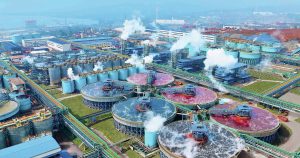
Increased royalty rates not expected to affect nickel production
Indonesia is increasing the royalty rates that the government takes on metals mined within the country. The Indonesian government has proposed a tiered royalty structure on nickel ore sales, ranging between 14–19%, depending on the prevailing nickel price. This would replace the current flat rate of 10%. A 14% rate would apply when nickel prices are below $18,000 /t, increasing progressively to 19% for LME prices above $31,000 /t. The royalty is calculated based on revenue from nickel ore sales.




